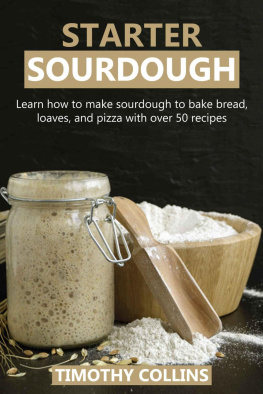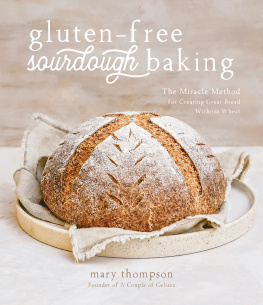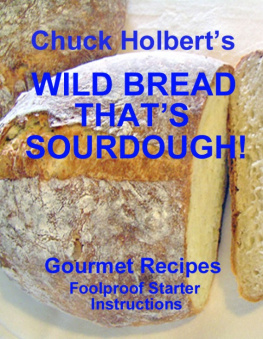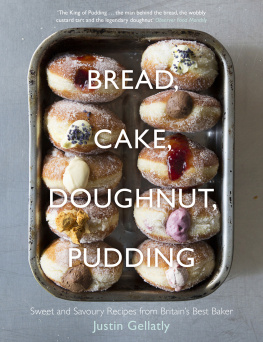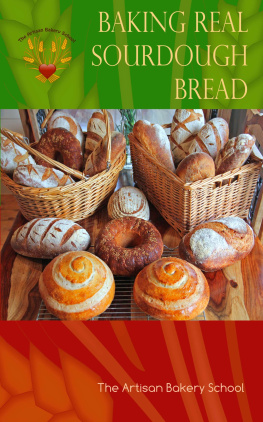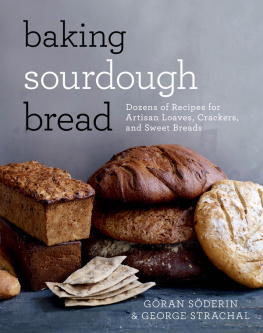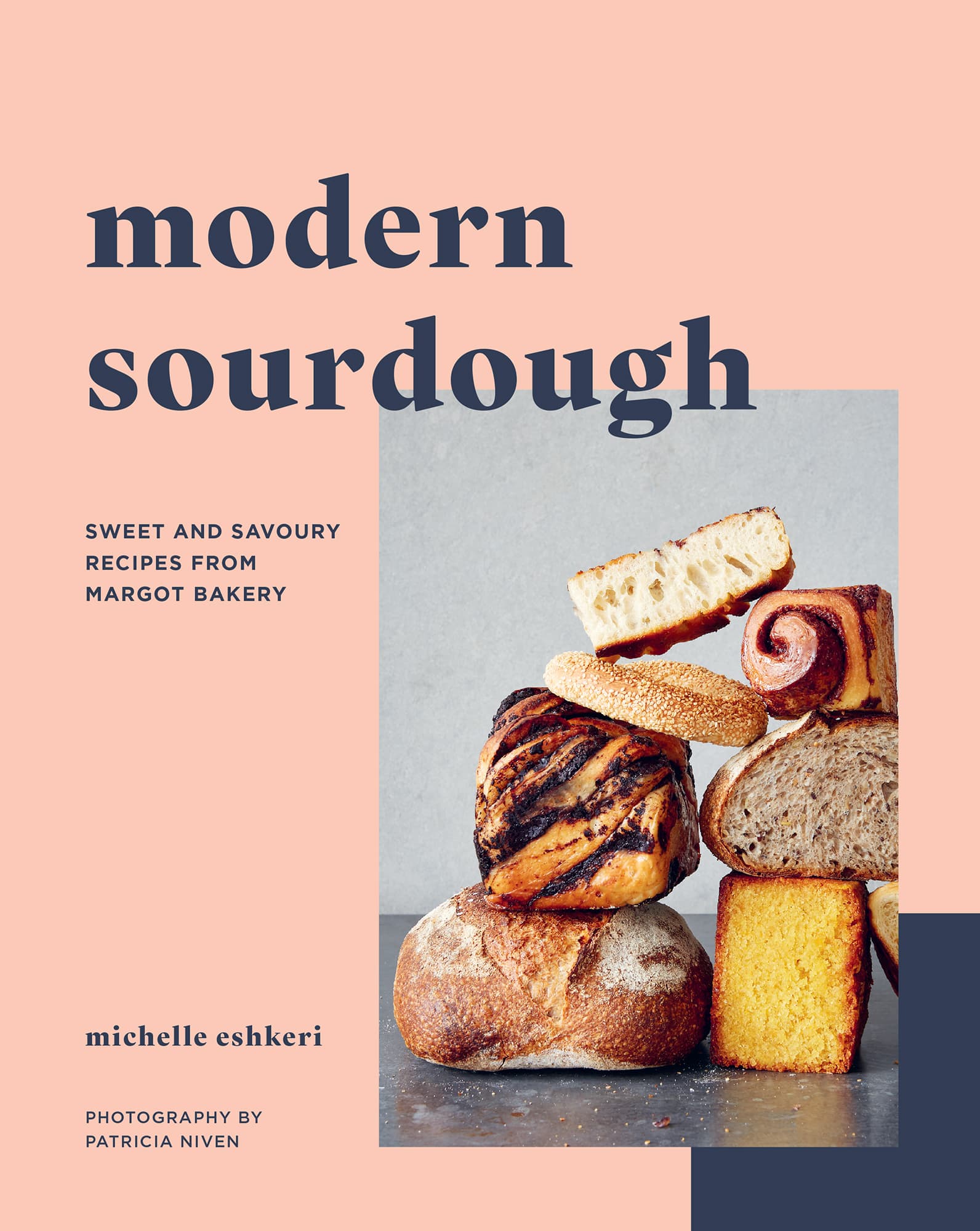modern sourdough
SWEET AND SAVOURY RECIPES FROM MARGOT BAKERY
michelle eshkeri
PHOTOGRAPHY BY PATRICIA NIVEN

INTRODUCTION
I was born in Manchester and grew up in Australia, before moving to London when I was 22. I found my community and started my family in North London. I opened Margot for the same reason I started baking bread at home, because there was nowhere in easy travelling distance for me to buy good bread for my family. I found a dilapidated ex-post office around the corner from my home and set about convincing the landlord to trust me with its reinvention and persuading lenders to provide money. I learned one step at a time about installing three phase electricity and how to lay out a bakery and a shop and manage suppliers, employment law, VAT and baking in large volumes amongst a hundred other lessons.
The baking at Margot is not always easy to define: our influences range from the fresh bold flavours found in Australian food, comforting recipes from the north of England to traditional Italian baking techniques and Polish and Hungarian fillings; we bake for both Jewish and Christian festivals. Sourdough doesnt belong to a single culture or country and in opening the bakery as a self-taught baker and as a woman, I believe that I have something worthwhile to offer in baking bread as much as a bakery with a long illustrious history or a baker using a one hundred year old sourdough starter. A lack of experience or ones gender or a lack of equipment need not be a barrier to baking bread. Our bread is not always perfect, but my priority has always been, and will always be, quality. And with passion and determination I sincerely believe anyone can make good bread.
People often comment on the amount of patience it must take to be a baker as though we were a serene and contented type. I dont disagree that to bake is good for the soul, but it is also for hungry and impatient people who have discovered the satisfaction of creating, holding and consuming their best work in hours or at most days. Baking feeds your body and soul and usually welcomes positive responses from those who receive the results. Gratification is fairly immediate and as one batch ends the next is close behind or already underway, ready for the next thrill. I have learned my craft through trial and error, from experiments and conversations in person and online; collecting and discarding ideas as I went. There is not only one way to make bread and there are as many ways to make good bread as there are bakers. The pleasure of sourdough is that all but the biggest disasters are usually edible and you learn something with each bake. It may not be perfect or beautiful but it will almost certainly be delicious.

The recipes in this book can be followed as they are but please do also consider them a starting point: endless variations are possible. You can adjust the processes and experiment with different quantities and flavour additions. I am including the formulas that we use in the bakery and they have evolved based on opening hours and shift patterns as well as my own preference for bread and pastries made with a mature starter and a long cold final proof. It is a book of the Margot bread as it has evolved from its beginnings in my own kitchen. It isnt flashy or fancy, I always choose flavour and practicality over appearance. Often the most beautiful bread lacks flavour and spectacular oven spring can mean under-hydrated, under-fermented bread. Style is not more important than substance at Margot but there is a sweet spot where the two intersect and a beautiful and delicious bread remains the goal for all of us every day.
One of the most challenging aspects of sourdough is in working with sweet doughs. The usual process is much slower than when one uses commercial yeast and structure and time scales are wildly different. It was the focus of some of my most extensive experiments even before opening the bakery and we are, though I hope not for too long, one of the few bakeries in the UK which naturally leaven all our bread and vienoisserie with sourdough. It is more difficult from a production and logistical point of view but I believe despite the time it takes and trouble it can cause that the flavour is exceptional. Complex and varied and delicious; even when it is perfectly sweet, it has a tang and depth that is like no other sweet bread in the world.
For all the difficult moments, mistakes I have made and stressful days and nights involved in opening a business, the extraordinary pleasure I get from customers saying how much they enjoy our produce and the pleasure of watching the shop fill with people who have come to their local bakery is so incredibly satisfying. Its a community firstly of the bakers and the team who work in the kitchen and front of house. They have inspired and challenged me and I have learned so much from each person I have worked with. Its also a community of neighbours and bread lovers, locals and those who visit the UK from all parts of the world and make time to come to see us. Im still learning and get through by seeking the expertise of others, learning from mistakes and a good dose of intuition to continue our growth and to allow innovation. Its a work in progress and a personal, complicated journey while also standing alone and separate from me. This book then, is a record of the journey to Margot and of the recipes I love and a record of a place I helped to create. It captures the essence of the journey and the recipes that we bake and work on every day.

BREAD
MAKING A SOURDOUGH STARTER
Sourdough is the name given to a natural process of fermentation used most often to leaven bread and other doughs. It is an ancient process that at its most simple involves mixing flour, water and salt and waiting hours or days and then baking the mix.
The act of combining flour and water and leaving it to ferment will create a starter that provides the natural leavening for the dough. Wheat or rye flours are commonly used to make a starter and the yeast and bacteria that are naturally present on the grain are harnessed, concentrated and trained to behave in a predictable way.
Creating and maintaining the starter through regular refreshments during its establishment and thereafter, means that a loaf of bread is always within your reach. A vigorous starter will produce a lighter loaf and more satisfying results. If the starter is happy, the bread will be good.
HOW TO MAKE A SOURDOUGH STARTER
MAKES 100g (3/ oz)


